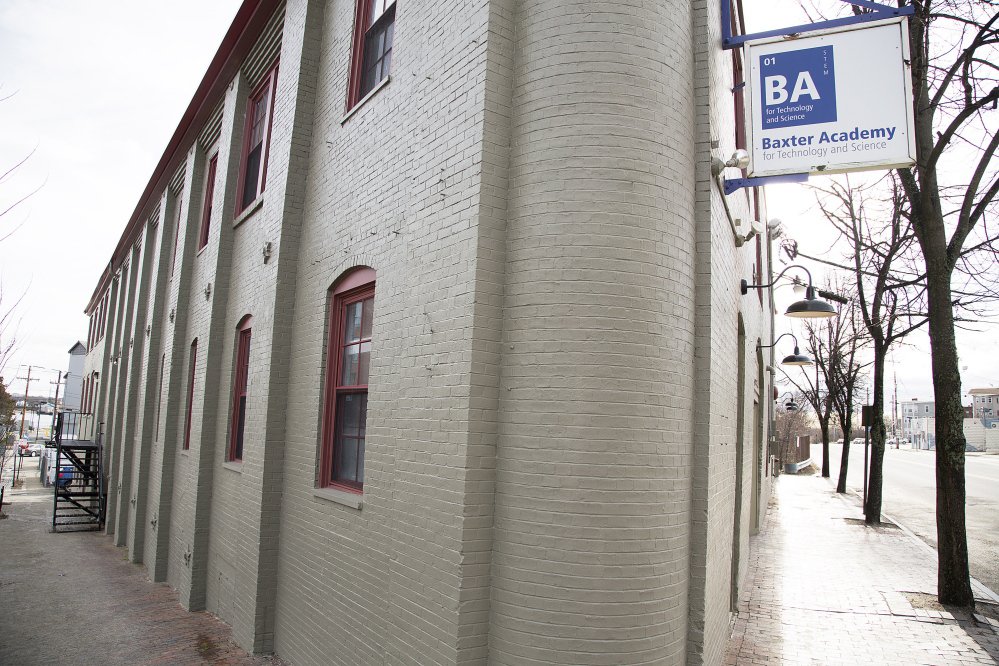Members of the Legislature’s Education and Cultural Affairs Committee voted against a charter school bill Tuesday that would lift the “10 schools in 10 years” cap and open the process to more schools.
Lifting the cap only five years into the process would be too soon, several lawmakers on the committee said. The committee voted 7-4 that L.D. 1158 ought not to pass.
“We need to take a careful look,” said Rep. Richard Farnsworth, D-Portland, noting that the charter schools are considered “an experiment.”
“Are they doing what we intended them to do? That’s the piece that hasn’t gelled, in my thinking,” Farnsworth said. “We probably need to bring in an evaluation team to look at the charter schools to identify strengths and weaknesses and all that and come in with some recommendations.”
The committee issued a “divided report” to the full Legislature, meaning that supporters could attempt to revive the measure on the House or Senate floor. A minority report from the bill’s supporters offered a compromise: A bill that would lift the cap, but allow only one charter school approval per year until 2021, when the cap would be lifted entirely.
About 2,000 of Maine’s roughly 182,000 students attend charter schools. State funding for the schools, which are continuing to add whole grades at a time as they expand in their startup years, is expected to be about $23 million in 2017-18.
There is political momentum behind charters now, particularly with President Trump appointing Betsy DeVos, a major charter school advocate, as secretary of education. The Trump administration also is expected to add incentives to encourage the growth of taxpayer-financed, privately operated charter schools across the nation.
During the public hearing, bill opponents pointed out that the original 10-school limit was crucial to getting political support to pass the initial legislation, and was intended to give the state time to evaluate the schools and the charter school oversight process before lifting the cap.
Senate Majority Leader Garrett Mason, R-Lisbon, who sponsored L.D. 1158 as well as the original charter school bill, said the waiting lists at Maine’s nine charter schools show the demand for more schools, and argued that the charter school commission that approves and oversees charters in Maine is providing strong oversight.
He also noted that there are no charters in many geographic areas of Maine, and groups could be discouraged from applying with only one opening left. Lifting the cap could spur new groups to apply for a charter, Mason said.
“There is only one slot left,” Mason said. “There may be some good ideas out of Bridgton or Lewiston. Those kids may not get served, or they will have to wait until 2021.”
Rep. Heidi Sampson, who served on the Maine Charter School Commission, argued for a limited cap.
“It’s a tough uphill climb to be able to be approved,” said Sampson, R-Alfred. “I think it’s reasonable to lift the cap to one or two a year. It’s not opening the floodgates, but it gives the people who want to do this hope.”
Maine’s nine charter schools include two virtual schools and two schools that offer residential options. There is no limit on the number of charters that could be opened by a local school board within the boundaries of its school administrative unit, but so far no district has pursued a charter.
Charter schools have been controversial in Maine, particularly in the early years when opponents argued that the schools were untested academic experiments that would siphon away state aid that would otherwise go to traditional public schools.
Financing initially came directly from the districts that send students to those schools, creating huge expenses at a handful of districts located near charter schools. School Administrative District 54 in Skowhegan sent about $1 million to two nearby charter schools – Cornville Regional Charter School and Good Will-Hinckley in Fairfield – before the funding mechanism was changed in 2015 to spread out the charter school costs statewide.
While concern over financing has eased, opponents note poor results on standardized tests at some of the schools, large numbers of students enrolling and then dropping out of a virtual school, and data that suggests charter schools enroll fewer poor students.
The Maine Charter School Commission also has taken steps to avoid some aspects of charter schools that have faltered in other states. The application process is rigorous and the commission, the sole authorizer of charter schools, requires regular audits, visits and reports from the schools. Some states have multiple authorizers with varying criteria and minimal oversight.
Rep. David McCrea, D-Fort Fairfield, said he also wanted to see an independent analysis of the schools and system.
“I see it as a grand experiment,” McCrea said. “I’m very impressed with the distance and miles charters have come and I do feel they have a ways to go. That’s to be expected.”
The state department of education is evaluating the charter schools and plans to issue a report to the Legislature.
Noel K. Gallagher can be reached at 791-6387 or at:
Twitter: noelinmaine
Send questions/comments to the editors.



